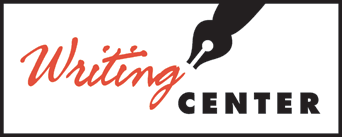 Discovery HOME
Discovery HOME  faculty/staff home
faculty/staff home  curriculum toolbox
curriculum toolbox  uh writing center
uh writing center  course & workshop services
course & workshop services
QEP Contact
|
Research Writing: Academic and Professional Communications
Offered either as an attached component to an existing lab/course or as a separate, stand-alone course, this module will provide students with an opportunity to hone both oral and written communication skills essential to complete the requirements of their chosen discipline, successfully publish (and present) their research, and compete as academic and professionals in the field. Depending upon instructor requirements, the module may include written and oral communication workshops and information literacy workshops offered by the library staff. Students will learn to critically analyze and produce texts relevant to their disciplines. The module will address Core QEP competencies and can be designed to satisfy Core WID requirement.
Research Writing Assignment Design
Students produce stronger writing and are more comfortable with the writing process when they fully understand instructor expectations. Writing Center experts in pedagogy and instructional design are available to consult with individual faculty on writing assignments within their course in order to ensure that expectations and evaluation criteria are being effectively conveyed so that students are able to fully engage in executing the assignment.
Evaluation Rubric Design
In the current climate of educational accountability and transparency, in addition to articulating the expectations and objectives for the courses they teach, instructors also want to make clear how student work will be evaluated. Writing Center staff can assist instructors who include writing in their courses and/or projects in developing rubrics that make their requirements and desired outcome explicit to their students.
Assignment-Specific Writing Consultations
Many Writing Center-partnered courses utilize one-on-one consultations with writing consultants (peer tutors) in order to provide students support in the writing and revising process for their writing assignments. Occasionally, this model is used to address the needs of only the bottom-performing students in the class (usually identified by their performance on a previous course assignment or a writing assessment), though often every student is required to attend at least one writing consultation prior to submitting the assignment.
Writing in the Disciplines Core Courses
As part of disciplinary “ownership” of writing, faculty members are encouraged to meet with Writing Center staff to discuss ways in which to incorporate writing instruction and support into their courses consistent with the Writing in the Disciplines Core outcomes and requirements. Various services – such as faculty consultations with pedagogy and assessment experts and student writing instruction and consultations – are available to support the Core WID course upon implementation. More information about the university WID Core requirement can be found at:
http://www.uh.edu/writecen/Students/Writing-in-Disciplines/WIDcoreCriteria.pdf
Support for Multilingual Writers
Although we are aware that few students come to the university fully prepared to write and speak the language of academia, the Writing Center also recognizes that multilingual writers (also known as nonnative-English-speaking or ESL students) experience a unique set of challenges. Hence, the support for multilingual writers will be integrated throughout any module and implemented as needed. Such support may include introducing students to discipline-specific writing conventions in the context of American academic writing, helping them notice salient linguistic and/or rhetorical features common to the field, addressing plagiarism and documentation issues, and training in self-editing techniques.
Writing Center instruction can also be provided in the following formats depending on college or department requirements and student needs:
Course-Integrated Writing Workshops
Designed to be both informative and interactive, course-integrated workshops typically incorporate both instruction on writing within the discipline and student exercises, usually composed of the analysis or composition of small discipline-specific writing samples. Workshops often take place at the Writing Center and can be delivered either during specific class periods or outside of class of class time. The following is a list of research related topics that Writing Center pedagogy specialists can deliver via workshops, course-based instruction, and/or small group, student driven weekly Writing Studios.
Research Writing: Ethics Research Writing: from Academic Journals to Popular Writing Evaluation of Research Sources Progress Reports Research Presentations Tone in Professional Communications |